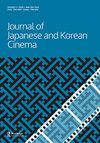战时殖民地首尔的外国电影和电影文化斗争(1937-1941)
引用次数: 0
摘要
第二次甲午战争(1937年)爆发后,日本政府限制外国电影进入日本及其殖民地。战时法规不仅影响了日本与西方国家之间的电影贸易,还进一步改变了韩国殖民地的电影发行和放映方式。作为朝鲜殖民地的首都,首尔拥有朝鲜半岛上最集中的电影院。作为日本帝国的地方市场,首尔的剧院直接受到战争动态变化的影响。外国电影发行放映的不稳定局面一直持续到1941年太平洋战争爆发,好莱坞和日本之间的贸易完全崩溃。本文考察了日本帝国在战时如何控制电影进口及其对殖民首尔放映外国电影的影响,同时也讨论了战时电影文化的复杂性以及影响殖民朝鲜和日本大陆的政治和经济不对称。本文章由计算机程序翻译,如有差异,请以英文原文为准。
Struggles over foreign films and film culture in wartime colonial Seoul (1937–1941)
ABSTRACT After the outbreak of the Second Sino-Japanese War (1937), the Japanese government restricted the importation of foreign films into Japan and its colonies. Wartime regulations influenced not just film trade between Japan and the Western countries, but also brought about further changes with regard to distribution and exhibition in colonial Korea. Seoul, the capital of colonial Korea, enjoyed the largest concentration of movie theatres on the Korean peninsula. As a local market of the Japanese empire, theatres in Seoul were directly affected by the changing dynamics of war. The unstable situation of the distribution and screening of foreign films continued until the outbreak of the Pacific War in 1941 when commerce between Hollywood and Japan collapsed completely. This essay examines how imperial Japan controlled film imports and its impact on the screening of foreign films in colonial Seoul during wartime, while also discussing the complexities of wartime film culture as well as political and economic asymmetries affecting colonial Korea and mainland Japan.
求助全文
通过发布文献求助,成功后即可免费获取论文全文。
去求助
来源期刊

Journal of Japanese and Korean Cinema
Arts and Humanities-Visual Arts and Performing Arts
CiteScore
0.60
自引率
0.00%
发文量
16
期刊介绍:
Journal of Japanese and Korean Cinema is a fully refereed forum for the dissemination of scholarly work devoted to the cinemas of Japan and Korea and the interactions and relations between them. The increasingly transnational status of Japanese and Korean cinema underlines the need to deepen our understanding of this ever more globalized film-making region. Journal of Japanese and Korean Cinema is a peer-reviewed journal. The peer review process is double blind. Detailed Instructions for Authors can be found here.
 求助内容:
求助内容: 应助结果提醒方式:
应助结果提醒方式:


